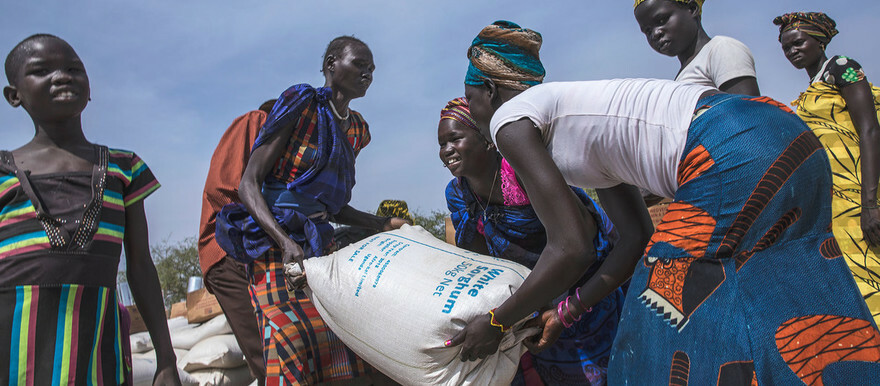At least 31,471 who have been going hungry in Eastern Equatoria State’s Kapoeta North County on Monday started receiving food assistance from the World Food Programme (WFP).
The food is being distributed by the Adventist Development Relief Agency (ADRA) in the seven payams of Kapoeta North County.
The county has been grappling with hunger and poor harvests due to delayed rains.
Morris Oketa, a commodity officer with ADRA, told Radio Tamazuj Monday that some of the food items distributed include cooking oil, sorghum, lentils, and salt.
“We are giving food to vulnerable groups and the food is funded by WFP,” he explained. “We started distributing the food in March and we are targeting a total of 31,471 people in the seven payams of Kapoeta North County.”
“This is now the last distribution which we are conducting in July and we are distributing cooking oil, sorghum, lentils, and salt,” Oketa added.
He however urged the affected communities in the area to prioritize agriculture to avoid dependence on humanitarian aid assistance which he said is not sustainable.
“Our people should not rely on this kind of assistance because we have vast lands which they can work to earn a living. If we harvest excess, we can also supply other areas,” Oketa counseled. “My only advise to the citizens is that let us work so hard so that we do not rely on food assistance from outside.”
Meanwhile, Alice Nakudu, a mother to four, said she received 30kgs sorghum, cooking oil, lentils, and salt which she says will help sustain her family for two weeks.
“These are lentils, sorghum, oil, and salt and those malnourished children below the age of two are getting paste. This support will help sustain us for 15 days,” she said. “This support will help us a lot but later we will continue surviving on food from the bush. If there is no more food, people will die of hunger, and children will go roaming in the streets.”
“People are farming but yields are poor so they should give us some good seeds so that we can cultivate because this humanitarian food might not be there in the future,” Nakudu added.
Another food recipient, Martin Lokaii, said his family’s health will improve.
“I have gotten sorghum, lentils, and oil and these items will help me and my family. We will eat and nobody will fall sick,” he said. “We were surviving on a wild fruit called Laluk. When it rains well, we normally eat greens like kudura. The humanitarian agencies should continue helping us.”




